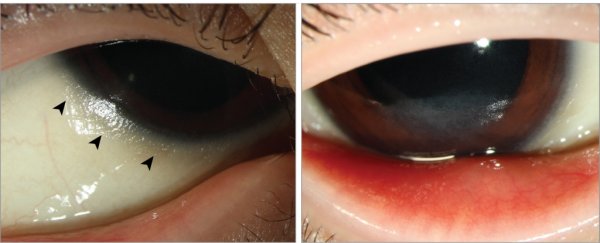There may not be much truth to the old folk wisdom that carrots make your eyesight better, but it turns out that not eating your veg will almost certainly make it worse.
Doctors have described the case of an 11-year-old boy who presented to their clinic in Canada with severe vision loss, due to a highly restrictive diet. The culprit? A lack of vitamin A.
He'd gone to the hospital after eight months of increasing problems. Dry eyes, night blindness, sensitivity to light and increasing vision loss, to the point of severity: by the time he visited The Hospital for Sick Children in Toronto, he could only see hand movements a maximum of 30 centimetres (12 inches) from his face.
The difficulty arose because he also suffered from eczema and multiple food allergies, which meant that his diet was highly restricted.
"Owing to concerns about food triggers of his eczema, the child had a restrictive diet consisting solely of potato, pork, lamb, apples, cucumber, and Cheerios," the doctors wrote in their case report.
None of these food items are particularly high in vitamin A, which, as it turns out, is super important for your vision. The photoreceptor cells in your eyes rely on vitamin A to detect light, and the vitamin also keeps the cornea moist and protected.
The patient's eyes were extremely dry, and had keratinised patches with a dry foamy appearance. These are called Bitot's spots, and are a typical symptom of vitamin A deficiency.
When the doctors tested the boy, his vitamin A levels were severely low - 14.33 micrograms per decilitre. A normal range is 25.79-48.71 micrograms per decilitre.
"Vitamin A deficiency is generally thought of as a disease that primarily affects people in low resource environments, such as countries in the developing world, where food choices are limited and malnutrition is endemic," the doctors wrote.
To treat the boy, the doctors administered three megadoses of vitamin A of 200,000 international units each. The first two were administered on the first two days after diagnosis respectively, and the third dose took place two weeks later.
 JAMA Pediatrics Clinical Challenge
JAMA Pediatrics Clinical Challenge
After six weeks, the boy's vision had improved to 20/800 in both eyes, and the dryness and Bitot's spots had cleared up, as seen in the image above. However, 20/800 still fits into the legally blind category if it cannot be corrected to better than 20/200 with glasses or contact lenses.
And he may never fully heal.
"Vision loss associated with vitamin A deficiency can be reversible; however, in cases with established optic atrophy, as was the case in this patient, a degree of vision loss is likely permanent," the doctors wrote.
"This patient illustrates the importance of considering micronutrient deficiencies in high-resource settings, particularly in persons for which a diet rich in various food sources is not evident, such as children with highly restrictive diets."
We're not medical advisors, but if you want to avoid this fate for yourself or your children, it's probably a good idea to ensure that foods rich in vitamin A are part of your diet. This includes foods like liver, kidney, eggs, leafy green vegetables, sweet potatoes, and, yes, carrots.
The case report was published online in the journal JAMA Pediatrics Clinical Challenge.
